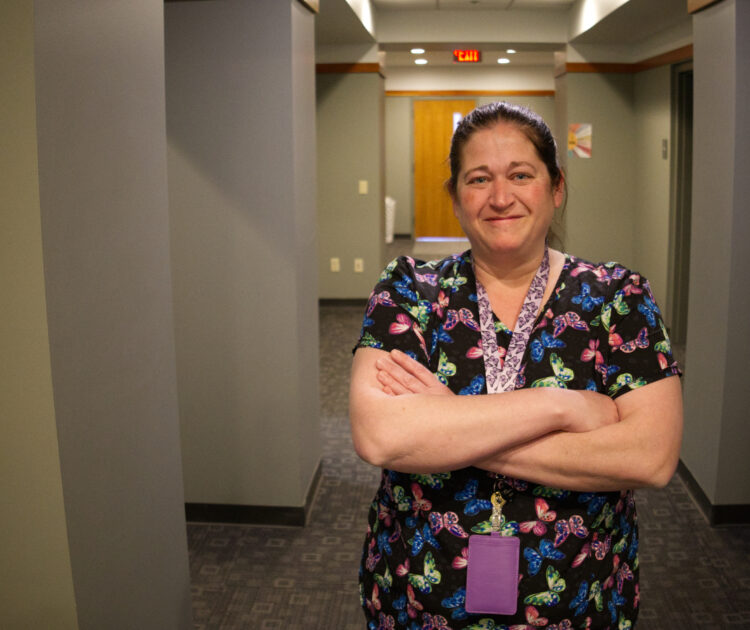Throughout our lives, we experience many life transitions—some expected, some sudden. These changes can reshape our routines, relationships and even our sense of identity. Whether they bring growth or hardship, learning how to manage transitions is key to maintaining your mental and emotional well-being.
What Are Life Transitions?
A life transition is any significant shift that alters your daily routine or self-perception. Common life transitions include:
- Moving to a new home or city
- Going through a serious illness or recovery
- Puberty, menopause, aging or other life stages
- Starting or losing a job, or retiring
- Getting married, divorced or losing a loved one
- Becoming a parent or becoming an empty nester
- Entering or graduating from school
Author Bruce Feiler, in his book Life Is in the Transitions: Mastering Change at Any Age, explains that most people experience a major transition—or what he calls a “lifequake”—every 12 to 18 months. These events can be personal, like a divorce, or shared, like the COVID-19 pandemic. About 53% of life transitions are out of our control, while 47% are chosen.
The 3 Stages of a Life Transition
Feiler breaks transitions into three main stages:
- The Long Goodbye – Letting go of what you’re leaving behind and processing your emotions.
- The Messy Middle – Learning, adapting and building new habits.
- The New Beginning – Embracing your new self and situation.
Just like a caterpillar becomes a butterfly, transitions take time and patience. You may not feel comfortable right away, but each phase helps you grow.
Why Life Transitions Are Hard
Some people seem to handle transitions well, while others struggle. A lot depends on your locus of control—your belief about what influences your life. If you believe you can shape your future, transitions might feel easier to manage. But if you feel controlled by outside forces, it may be harder to adapt.
People who are open to new experiences and can focus on the journey, not just the destination, often cope better with change. But even the most flexible individuals can feel overwhelmed during a major transition.
How to Cope with Life Transitions
Here are seven proven ways to deal with life transitions in a healthy, constructive way:
1. Accept Your Emotions
It’s okay to feel sad, scared or angry. Allow yourself to grieve what you’ve lost. Writing in a journal can help you make sense of your feelings.
2. Reframe the Situation
Try to view the transition as a challenge, not a threat. Use self-talk to remind yourself: “Uncertainty doesn’t mean something bad will happen—it just means I don’t know yet.”
3. Make a Plan
If you’re initiating a change—like returning to school or changing careers—break the process into small, manageable steps. Taking one class or updating your resume is a good place to start.
4. Give Yourself a Mental Break
Set aside time to relax, daydream, nap or doodle. These short breaks give your brain a chance to reset and help reduce stress.
5. Reflect on the Past
Look back at previous transitions. How did you cope? What helped you then? This reflection can build confidence in your ability to face current or future changes.
6. Lean on Your Support System
Talk to trusted friends or family members who have been through similar experiences. Support from others can help you feel less alone and more hopeful.
7. Stay Active
Keep your body and mind engaged with meaningful activities—whether that’s work, hobbies or community involvement.
When Life Transitions Become Too Much: Adjustment Disorders
Sometimes, transitions lead to more than just temporary stress. If symptoms last for more than a few weeks and interfere with your daily life, you may be experiencing an adjustment disorder.
Signs of an adjustment disorder:
- Sadness or crying often
- Anxiety or constant worrying
- Sleep problems
- Trouble concentrating
- Loss of interest in daily life
- Withdrawing from people or responsibilities
- Thoughts of self-harm
People at higher risk include those with past trauma, poverty, mental health challenges or substance use.
The good news? Help is available. If you’re struggling with a transition, you don’t have to go through it alone. Learn more about mental health services from Citizen Advocates.
FAQ: Help for Navigating Life Transitions
What kind of support is available for dealing with life transitions?
We offer a variety of mental health services to support you through change:
- Group counseling provides a space to connect with others who are also facing life changes.
- Individual, group and family therapy helps you process your emotions and develop coping strategies.
- Co-occurring behavioral health services support individuals experiencing both mental health and substance use challenges.
- Peer support services connect you with someone who’s been through similar experiences and can help guide you.
What if I need immediate help?
Visit one of our behavioral health campuses for same-day support or call our 24-hour Crisis Line at 518-483-3261. If you’re in St. Lawrence County and experiencing a mental health or addiction crisis, please call our dedicated 24-hour line at 315-265-2422.
How do I know if therapy is right for me?
Everyone’s journey through change is different. If your thoughts or feelings are interfering with work, school or relationships, therapy can help. Take the first step and explore your options.
Ready to Take the First Step?
Life transitions are a natural part of the human experience. With the right tools and support, you can come through stronger and more self-aware. If you or a loved one needs help navigating change, contact us today to find the Citizen Advocates clinic nearest to you.
You don’t have to face change alone—we’re here for you.


 Previous Post
Previous Post

